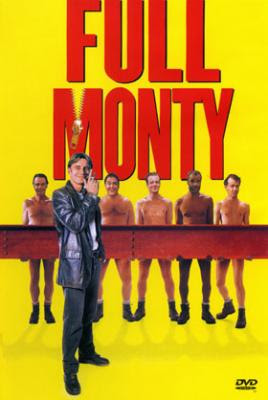 While the city budget is formally debated and approved by our elected representatives, we are never active participants in the process to decide how to raise and spend our money. If we could actually see where our money goes, we could better influence the city budget -- and make our government work for us.
While the city budget is formally debated and approved by our elected representatives, we are never active participants in the process to decide how to raise and spend our money. If we could actually see where our money goes, we could better influence the city budget -- and make our government work for us.
The plan to raise and spend public funds articulated in the city budget represents the most concrete expression of our collective civic will. But, we the people never truly get a chance to influence the decisions about public spending. One big reason the public is not engaged in budget deliberations is that we have very little information about city spending to inform our engagement. Even if we want to understand city spending, the information readily available to us is just not useful.
The city budget ordinance passed by City Council is a bland document that offers precious little information except how much money is allocated to each city department and how that money is divided by class -- how much for personnel, how much for contracts, how much for supplies, and so on. The city produces a budget detail contained in volumes of pages full of numbers that break down spending by sub-category, without showing where the money actually goes. A Five-Year Financial Plan contains information about departmental accomplishments, but does little to link those accomplishments to the actual spending. (See below.)
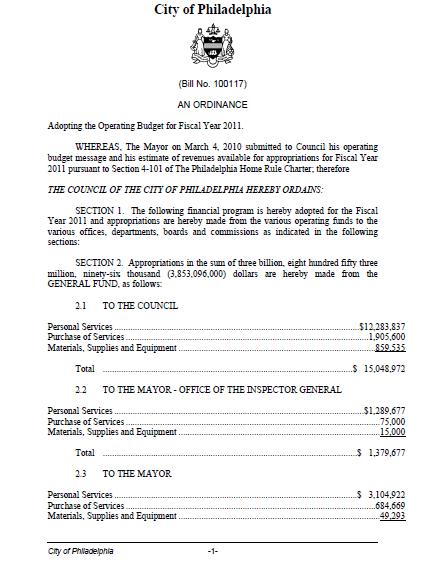
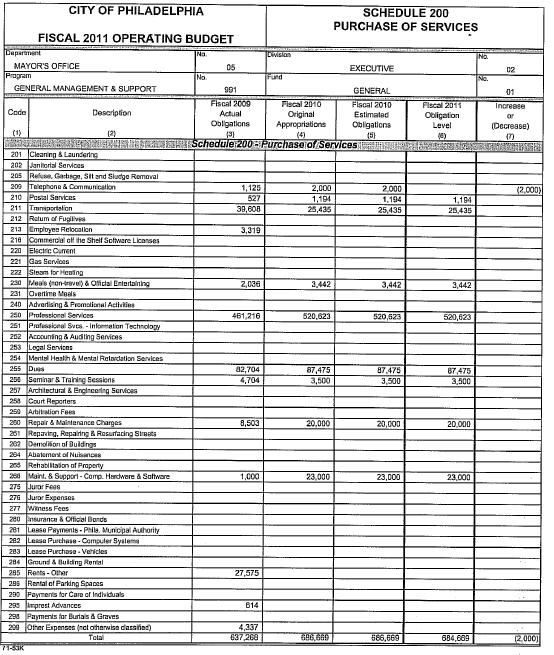
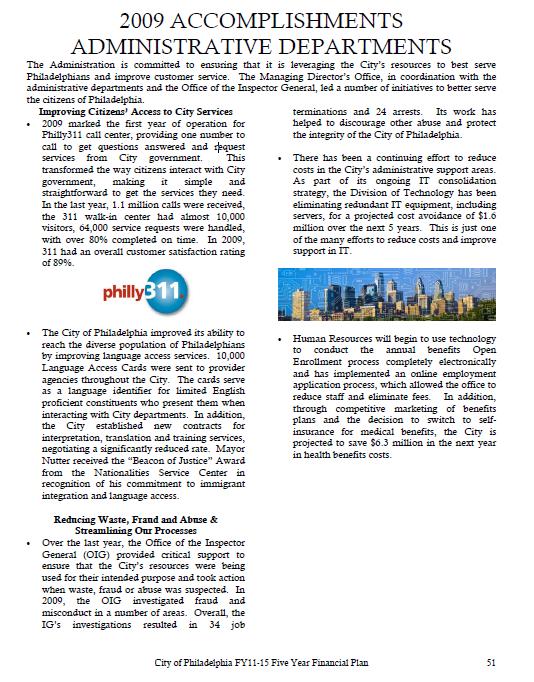
With the services we count on threatened with budget cuts and taxes on the increase, we should be watching our city budget as carefully as we are watching our own household spending. We can't be wasting money or getting ripped off and we can't have access to only a little information about the budget. We need to be able to see it all.
Every year our elected officials choose to spend our money in so many ways -- deciding whom to hire, which firms to engage, and what programs to fund. We have seen so many examples where a little public scrutiny and a little public outcry about one of those spending choices forced our officials to reconsider a decision (say, when the Mayor recently decided that public money would pay for an out-of-town trip). If we had information about every single spending decision, we could undoubtedly encourage our elected officials to make some better choices.
It's not about seeing something, it's about seeing everything. We can't urge our leaders to make different choices if we don't know our options and don't know where and how we are currently spending our money. But, by changing a few spending priorities, we can help find the resources to fund the cost of our many city parades, keep all our pools open each summer, or avoid rolling brownouts in the Fire Department.
Such a "Full-Monty" budget could show us where every penny is going so that in this time of ongoing fiscal crisis (and in all other times) we could see whether we approve of our leaders' spending choices. (Of course, this information already exists, so this kind of governmental transparency need not cost us a dime -- but, right now, only certain insiders can see it all.)
Through a series of Right-to-Know requests, I have been able to break down the spending of a few example city departments to give us a better idea of how these agencies spent our money last year. I have presented the data with some explanatory information and organized it in a straightforward manner for our collective review. The information can all be found on my website -- www.brettmandel.com -- where you can review these budgets and even make comments and note your questions about the information.
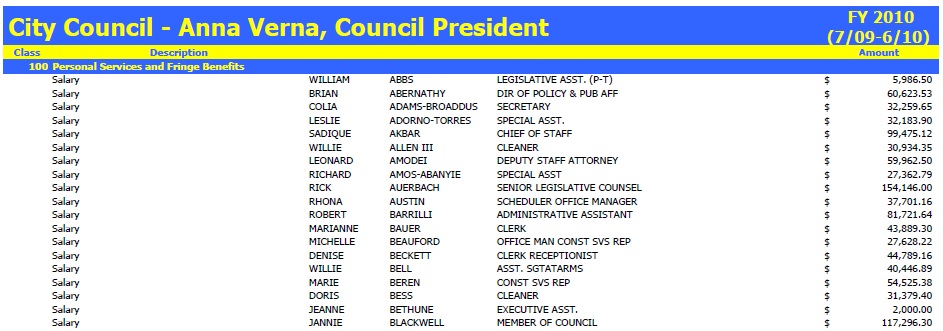

I would expect that, like me, you would question some of the spending choices:
- Why does the Mayor's Office spend so much on so many lobbying firms, bear responsibility for a $190,000 payment for a claim in a breach-of-contract suit, and what was the payout for $475,000 in Civil Rights Attorney's Fees?
- Why does City Council employ more than 200 employees to serve only 17 legislators, spend so much for newspaper advertising in the Internet age, and allow its members to hold outside employment when they are paid so well?
- Why does the Managing Director's Office spend nearly $6 million on Professional Services contracts, utilize so many high-salaried "Deputy Mayors" to run a government that was conceived to operate without them, and pay out $134,000 for expenses listed as "Other Expenses Not Otherwise Classified?"
- Why does the City Controller's Office spend so much money staffing a "Community Affairs" department, employ so many relatives of other politicos, and pay thousands to a consultant whose home was recently raided by the FBI?
Ideally, we would have much more information about the goals our agencies are aspiring to reach through their spending, the strategies they are employing to meet those goals, and the results they are achieving with in their efforts. If, in Philadelphia, the public were truly engaged in efforts to establish shared values, set governmental priorities, and evaluate governmental performance in a continuous feedback loop, we could dramatically change the way the public interacts with its government and improve the way government addresses public concerns.
That said, this accounting of where some of our city departments spend our money is a fun start. So, cue the burlesque music…and get ready to see it all -- the Full-Monty budget.




